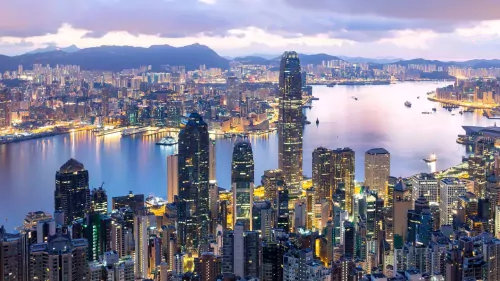
China is known as one of the largest and most powerful countries in the world. Its economy has grown rapidly in recent years, and its influence in global affairs has increased significantly. However, behind the impressive statistics and achievements lies a complicated political landscape that is plagued with various challenges.
One of the biggest political problems in China is the lack of political freedom and human rights. The Chinese government is known for its strict control over media and the internet, censorship, and limitations on freedom of speech and assembly. This has led to the suppression of dissent and criticism, as well as the persecution of human rights activists, journalists, and lawyers.
Another major challenge facing China is corruption. Corruption has been a problem in China for decades, and despite government efforts to combat it, it remains a serious issue. Corrupt officials often abuse their power for personal gain, resulting in unfair distribution of resources, economic imbalances, and social unrest.
Corruption has long been a problem in China, affecting all levels of government and society. It has been cited as a major obstacle to economic development and a threat to social stability.
One of the primary causes of corruption in China is the lack of transparency and accountability in government. Officials are often not held accountable for their actions, and the opaque nature of China's political system makes it difficult for citizens to hold them accountable. This has created an environment where corruption can thrive, with officials often abusing their power for personal gain.
Corruption in China takes many forms, including bribery, embezzlement, and nepotism. In recent years, there have been numerous high-profile corruption cases involving high-ranking government officials and business leaders.
The Chinese government has taken steps to address corruption in recent years, launching a high-profile anti-corruption campaign in 2012. This campaign has led to the arrest and conviction of numerous high-ranking officials, including former Politburo member Bo Xilai and former security chief Zhou Yongkang.
However, there are also concerns about the political motivations behind the anti-corruption campaign, with some arguing that it is being used to eliminate political rivals and consolidate power rather than to root out corruption.
Despite the government's efforts, corruption remains a serious problem in China. According to Transparency International's 2021 Corruption Perceptions Index, China ranked 78th out of 180 countries, indicating that corruption remains a significant challenge for the country.
Addressing corruption in China will require sustained efforts from both the government and civil society. This includes strengthening transparency and accountability mechanisms, promoting a free and independent media, and encouraging citizen participation in anti-corruption efforts. Only by addressing corruption can China build a more prosperous and equitable society for all its citizens.
Moreover, there are tensions and conflicts between China and other countries, particularly in the South China Sea and Taiwan. China's claims to certain areas in the South China Sea have been disputed by neighboring countries, leading to tensions and even clashes. Similarly, China's claims to Taiwan have long been a source of conflict with the United States and other countries.
In addition, China is facing significant environmental challenges, including air and water pollution, soil degradation, and deforestation. The government has made efforts to address these issues, but progress has been slow, and there is still much work to be done.
Finally, there are concerns about China's rapidly aging population and the implications this will have on the country's economy and social fabric. With a declining workforce and increasing healthcare costs, China may struggle to maintain its economic growth and provide for its citizens in the future.
In conclusion, while China has made significant progress in recent years, it still faces numerous political challenges. Addressing these issues will require sustained efforts from both the government and the people of China, as well as cooperation with other countries around the world.








